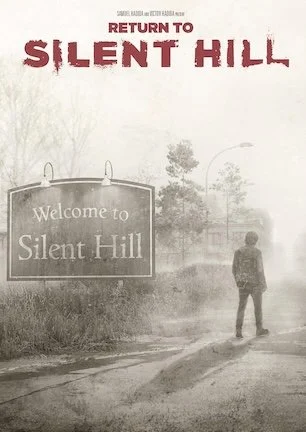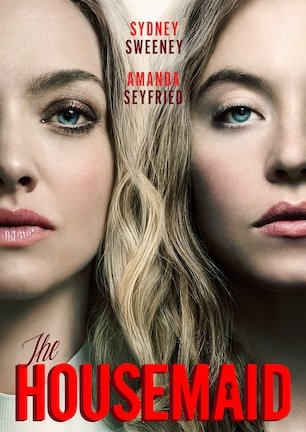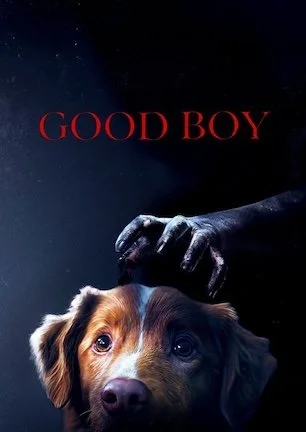Studio: BBC
Director: Joe Ahearne
Writer: Joe Ahearne, James Herbert
Producer: Ann Harrison-Baxter
Stars: Suranne Jones, Tom Ellis, Douglas Henshall, David Warner, Sarah Smart, Iain De Caestecker, Olivia Cooke, Maisie Williams, Bill Milner, Pixie Davies, Kian Parsiani, Susan Lynch, Donald Sumpter
Review Score:
Summary:
The tragic deaths of several children in 1943 intersect with the abduction of a boy in the present day when a family moves into a haunted orphanage.
Review:
With a foreboding old house and sinister black birds tearing through the night sky in front of an ominous skull, the box art for “The Secret of Crickley Hall” gives an impression of it being a certain type of film. Featuring spirits interested in benevolence and some consumed with malevolence, “Crickley Hall” certainly qualifies as a ghost story, but not necessarily as a horror movie. A more fitting way to describe the three-hour adaptation of James Herbert’s novel would be as a drama with supernatural elements.
That is an important distinction to make because improperly prepared expectations can make for a dull viewing experience when “The Secret of Crickley Hall” deserves to be enjoyed as an immensely gripping mystery. Having been a BBC television special, American audiences will notice a PBS production quality to the film’s presentation. That format is fine, but again, a misconception about “Crickley Hall” being something other than what it is might leave some with the feeling that they have been hoodwinked into a Miss Marple mystery. “Crickley Hall” is free of blood, nudity, and swearing, thus making it suitable for television, yet the film is very much geared towards adult audiences. And none of those aforementioned staples are necessary for the story to have an impact as something ghostly without being horrific.
In 1943, Crickley Hall served as a home for orphans displaced by bombing raids on London during WWII. Headmaster Augustus Cribben was never the same after a head injury. Aided by his sister Magda, Augustus vented his constant anger and frustration through a cane that regularly saw the children’s skin for any infraction from wetting the bed to laughing in class. New teacher Nancy uncovers the abuse and vows to rescue the orphans from their lives of perpetual fear and physical pain.
With the one-year anniversary of their six-year-old son’s abduction approaching in 2012, Eve and Gabe Caleigh decide to move away from London temporarily. With their two daughters Loren and Cally, they take up residence in Crickley Hall. It is not long before everyone in the family begins having visions of ghosts. Eve is convinced that her son is still alive and is trying to reach her through the orphan’s spirits. The children have been trapped within the house since dying there during a tragic flood in 1943. But Mr. Cribben is with them in Crickley Hall, as well. And he still has his cane.
“The Secret of Crickley Hall” is a dense tale that expertly intertwines multiple threads through a careful balance of both timelines. There is a great deal taking place concurrently in 1943 and in 2012, but the production has a knack for knowing when to parallel the stories and when to switch from one to the other without creating confusion. More importantly, it does not create boredom. Each timeline sustains its momentum in such a way that no matter which era the film is currently in, there is always a desire to see what is happening in the other. The juxtaposed narratives are never too much to maintain or to follow, despite the large cast of characters and intersecting events.
Spanning generations, the cast is a chain so strong that finding a weak link even amongst minor characters is a difficult challenge. Familiar veterans like David Warner and Donald Sumpter carry one end while emerging faces pick up the other. Olivia Cooke, who plays Emma Decody on TV’s “Bates Motel,” and Maisie Williams, Arya Stark from “Game of Thrones,” are just two of the younger actors who deliver performances as impressive as their more experienced counterparts.
“The Secret of Crickley Hall” is more likely to deliver tears than scares. With delicately handled depictions of child abuse, child abduction, and the deaths of young children, the film is thick with themes of sadness, loss, grief, and suffering. There are genuinely heartbreaking moments such as watching an abused orphan spinning a top and enjoying a chocolate bar as he waits hopefully for a rescue that the audience knows is not coming. It is deliberately melodramatic cinema, but “Crickley Hall” plays on the heartstrings without relying overmuch on sentimentality or cheap ploys at jerking a tear.
Remarkably, director Joe Ahearne establishes strong family ties and a chilling kidnapping in under four total minutes of screentime. “Crickley Hall” knows how to condense its plentiful drama into a tight three hours that is constantly on the move. Ahearne, who also adapted the Herbert novel for the screen, pushes events through contrived moments with amusing scenes that generally avoid saccharin sweetness in favor of genuine affection for the characters.
The Caleighs are introduced in an oft-used typical scene of impossibly tight knit behavior amongst an almost too loving family. Except the scenes of their son Cam playing “Bombs” by throwing a ball into his Lego brick construction and extorting his mother for more playground time are so charming that it is hard not to feel their plight when tragedy strikes.
The characters are also smart. The Caleighs do not waste too much time arguing about the existence of ghosts. Once the hauntings begin, they accept the events for what they are and move right into the plot. “Crickley Hall” does not spend its time establishing rules or treading into territory already well covered in other haunted house tales. Instead, “Crickley Hall” focuses on empathy, emotion, and suspense.
There are few traditional horror movie frights as far as jump scares and visual shocks go. Even the atmosphere is more concerned with moody tension. Yet such feelings still supply armrest-grabbing moments when Mr. Cribben’s cane hunts for a child to strike or when Nancy searches for Cribben’s punishment ledger.
It would be a hard point to argue that “Crickley Hall” does not rely on more than a few clichéd plot devices. Indeed, the climax in particular features a number of perfectly staged sequences such as timely character arrivals and improbable coincidences. But the action is exciting enough that such tropes can usually be forgiven. Above all else, wanting to know what happens next is always the primary motivator for remaining invested in the film’s pace.
As long as there is no expectation of gruesome poltergeists, or anything that resembles the box art, “The Secret of Crickley Hall” will reward those who settle in for a compelling mystery. This is a film about the telling of a richly layered story. It may not be pure horror, but it is completely engaging and highly entertaining.
Review Score: 85






While the 110-minute runtime could use a trim to maintain more energy, “Redux Redux” is an easy recommend for anyone who enjoys low-key sci-fi.